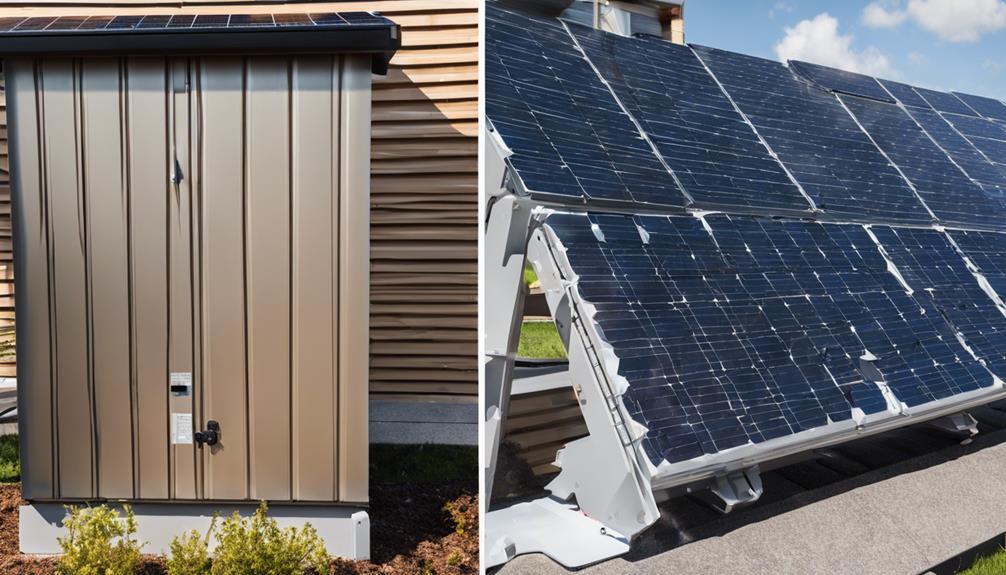
In recent years, the demand for renewable energy solutions has surged, driven by an increasing awareness of environmental issues and the need for sustainable living. Among these solutions, mini solar panels have emerged as an attractive option for many households and businesses seeking to harness solar energy without a significant upfront investment. In this blog post, we will explore the factors influencing mini solar panel prices, their benefits, and what to consider when purchasing them.
Understanding Mini Solar Panels
Mini solar panels are compact solar energy systems designed for smaller installations. These panels are ideal for residential use, powering small appliances, garden lights, or charging batteries. Their size and versatility make them a popular choice among eco-conscious consumers looking to reduce their carbon footprint. The typical mini solar panel ranges from 10 to 100 watts, making them suitable for various applications. As the demand for mini solar panels increases, it is essential to understand their price range and what affects it.
Factors Influencing Mini Solar Panel Prices
The price of mini solar panels can vary significantly based on several factors. Firstly, the wattage of the panel plays a crucial role in determining its price. Higher wattage panels generally cost more but provide greater energy output. Secondly, the brand and manufacturer can influence pricing, with well-known brands often commanding higher prices due to their reputation for quality and reliability. Additionally, the type of solar technology used—such as monocrystalline or polycrystalline—can also affect the price, as monocrystalline panels typically offer higher efficiency rates, albeit at a higher cost.
The Average Mini Solar Panel Price
As of 2023, the average mini solar panel price ranges from $100 to $300, depending on the wattage and brand. For instance, a 50-watt mini solar panel might cost around $150, while a 100-watt panel could be priced closer to $250. It’s essential to note that these prices may vary based on location, supplier, and any ongoing promotions. When considering the investment in mini solar panels, it’s crucial to evaluate the long-term savings on electricity bills and the environmental benefits they provide.
Cost vs. Benefits of Mini Solar Panels
When assessing mini solar panel prices, it’s vital to weigh the cost against the potential benefits. Mini solar panels can lead to substantial savings on electricity bills, especially for households that rely on small appliances or outdoor lighting. Additionally, they offer an eco-friendly way to reduce your carbon footprint. By harnessing solar energy, you contribute to a cleaner environment and promote sustainable living. Furthermore, many regions offer incentives and rebates for solar energy installations, which can help offset the initial costs.
Where to Buy Mini Solar Panels
Finding the right supplier for mini solar panels is essential for ensuring you get a quality product at a fair price. Online marketplaces like Amazon, eBay, and specialized renewable energy retailers offer a wide range of options. Additionally, local hardware stores and home improvement centers often carry mini solar panels. When purchasing, always check for customer reviews, warranty options, and return policies to ensure you make an informed decision. Comparing prices across different platforms can also help you find the best deal.
Installation Costs and Considerations
While the mini solar panel price is a significant factor, installation costs should also be taken into account. Many mini solar panels are designed for easy DIY installation, which can save you money on labor costs. However, if you’re not comfortable with DIY projects, hiring a professional installer is recommended. Installation prices can vary, typically ranging from $100 to $500, depending on the complexity of the setup. Be sure to factor these costs into your overall budget when considering an investment in mini solar panels.
Maximizing the Efficiency of Mini Solar Panels
To get the most out of your mini solar panels, proper installation and maintenance are key. Positioning your panels in an area with maximum sunlight exposure will significantly enhance their efficiency. Regular cleaning to remove dust and debris will also help maintain optimal performance. Additionally, investing in solar charge controllers can prevent overcharging and prolong the lifespan of batteries used in conjunction with mini solar systems. By taking these steps, you can ensure that your investment in mini solar panels continues to pay off over the long term.
Future Trends in Mini Solar Panel Technology
The future of mini solar panels looks promising, with ongoing advancements in solar technology expected to drive prices down and improve efficiency. Innovations such as flexible solar panels and integrated energy storage solutions are paving the way for more versatile applications. As the market for renewable energy continues to grow, consumers can expect increased competition among manufacturers, leading to better pricing and enhanced product offerings. Staying informed about these trends will help you make educated decisions regarding your mini solar panel purchase.
In conclusion, understanding mini solar panel prices and the factors influencing them is crucial for anyone considering this eco-friendly solution. By weighing the cost against the numerous benefits, exploring various purchasing options, and keeping an eye on future trends, you can make an informed decision that aligns with your sustainability goals. Investing in mini solar panels not only contributes to a cleaner environment but can also provide significant savings on energy costs, making them a worthwhile addition to any home or business.





